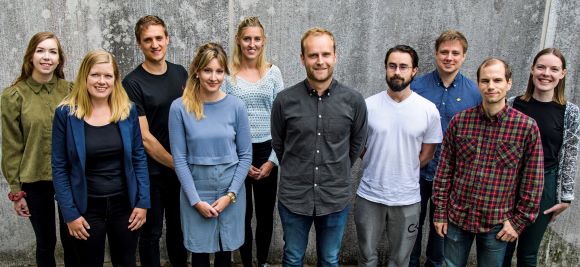Stage group
The ambition of our group is to “…contribute with high international quality research and education in translational pharmacology. We create synergy between the qualifications of the group and collaborators.”

Translational pharmacology is the study of drugs across scientific disciplines. We combine in vitro cell-based studies with small-scale clinical studies in either patients or healthy volunteers to increase translation and understand mechanisms underlying drug variability. Current projects:
- Understanding the impact of type 2 diabetes on drug metabolism and drug transport. In this project we use 3D primary human hepatocytes in vitro to understand the role of glucose and inflammation on expression and activity of drug-metabolizing enzymes and transporters. These efforts are combined with clinical pharmacokinetic studies in patients with type 2 diabetes and population-based studies to understand the clinical impact of this. This work is funded by a Lundbeck Foundation Fellowship.
- Drug-drug interaction studies with isoxazolyl penicillins. We are combining mechanistic studies in our 3D primary human hepatocytes with clinical pharmacokinetic studies in healthy volunteers to understand the ability of dicloxacillin and flucloxacillin to induce drug-metabolizing enzymes and transporters. This is combined with population-based studies to assess the clinical impact of these drug-drug interactions. This work is funded by a Novo Nordisk Foundation translational medicine grant.
- Chemotherapy-induced peripheral neuropathy is a dose-limiting toxicity to several widely used chemotherapeutic drugs. We are using induced-pluripotent stem cell-derived sensory neurons and Schwann cells to understand the mechanistic basis of this toxicity and chemotherapy transport in the peripheral nervous system. We aim to combine these mechanistic studies with data from cancer patients to improve translation. This work is funded by the Danish Cancer Society.
Besides the a fully functional cell laboratory, we utilize LC-MS/MS to analyze drug concentrations in cells, plasma and urine and an automated fluorescence microscope. We have several national and international collaborations that allows us access to additional state-of-the-art methods.
For further questions, contact associate professor and group leader Tore Bjerregaard Stage.
Brøsen group
The Brøsen group has for more than 35 years studied the cytochrome P450 (CYP) enzyme system with particular emphasis on genetic polymorphism and drug-drug interactions due to inhibition or induction. Ongoing projects include:
- Role of the CYP2D6 genotype on the population-based pharmacokinetics of vortioxetine and tedatioxetine
- Impact of CYP2C9 genotype and CYP2C9 inhibiting drugs on an individual’s metabolomics and metabolism of tolbutamide for interrogation of drug interactions
- Measurement of intracellular tacrolimus and development of a limited sampling strategy in individualized treatment in kidney transplanted patients
We are also studying the impact of drug transporters for the pharmacokinetics of drugs, notably metformin and opioids. Current projects include:
- Limited sampling strategy for the determination of the pharmacokinetics of metformin
- A putative pharmacokinetic drug-drug-interaction between codeine and metformin
- The role of organic cation transporters on the pharmacokinetics of morphine given postoperatively
For further questions, contact professor and group leader Kim Brøsen (kbrosen@health.sdu.dk).